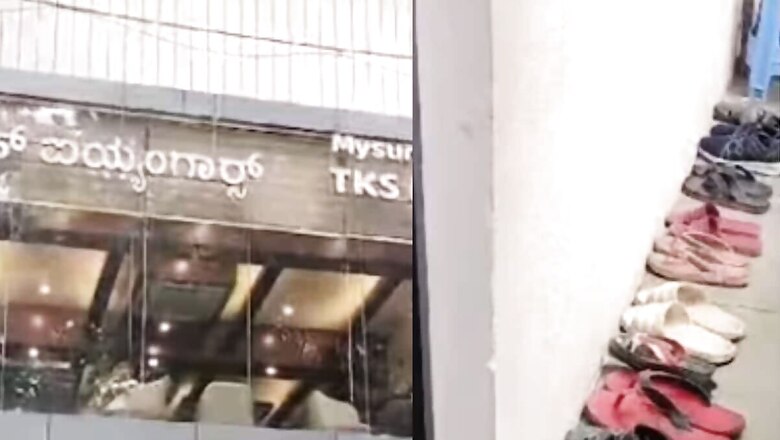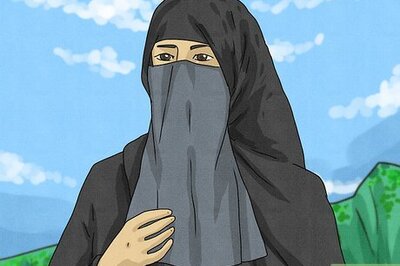
views
Before heading to any restaurant, the most important thing that comes to people’s mind is how the food and cleanliness will be there. To maintain cleanness and good hygiene, a fine-dine restaurant in Mysuru’s Gokulam has denied entry into their kitchen with slippers on. Yes! You read that right. It means all the staff members working at the hotel need to remove their slippers before entering the kitchen.
The TKS Iyengars Hotel in Mysore takes the utmost care of cleanliness for their customers. For this, they have adopted the same rules as followed in Indian households. In India, it is believed that one should never wear shoes or slippers in your home’s kitchen as it might bring misfortune. By doing this, it is said that Annapurna Mata becomes enraged and you could experience several issues.
About TKS Iyengar, the restaurant is quite popular in Southern India with branches in Mysore and Bengaluru. They are known for their delicious food preparation on the banana leaves. Some of their popular dishes are Anna Sambhar, Kosambari, Curd Bajji, Payasa, Majjige and Mosaranna among others.
In the Indian subcontinent or elsewhere, it is customary to take your shoes or slippers off before entering the premises. It is supposed to be a sign of respect to the host and a part of the efforts to keep the place neat and clean.
Apart from the kitchen, as per Vastu Principles, one should never go near a tijori (safe) wearing shoes or slippers. If someone does so, it is believed that Goddess Laxmi becomes eranged and it might lead to monetary problems.
Also, at the temples. In Hinduism, temples are known as the house of God. As a result, shoes or slippers should never be worn into the temple, not even accidentally. It is thought that God is offended when people enter the temple premises in shoes or slippers.
Call it a superstition or a ritual belief, but removing shoes before entering your home or kitchen is something non-negotiable in most Indian households.
Not just in India, similar ritual is followed in neighbouring countries like Nepal, Pakistan and even the Middle East.



















Comments
0 comment